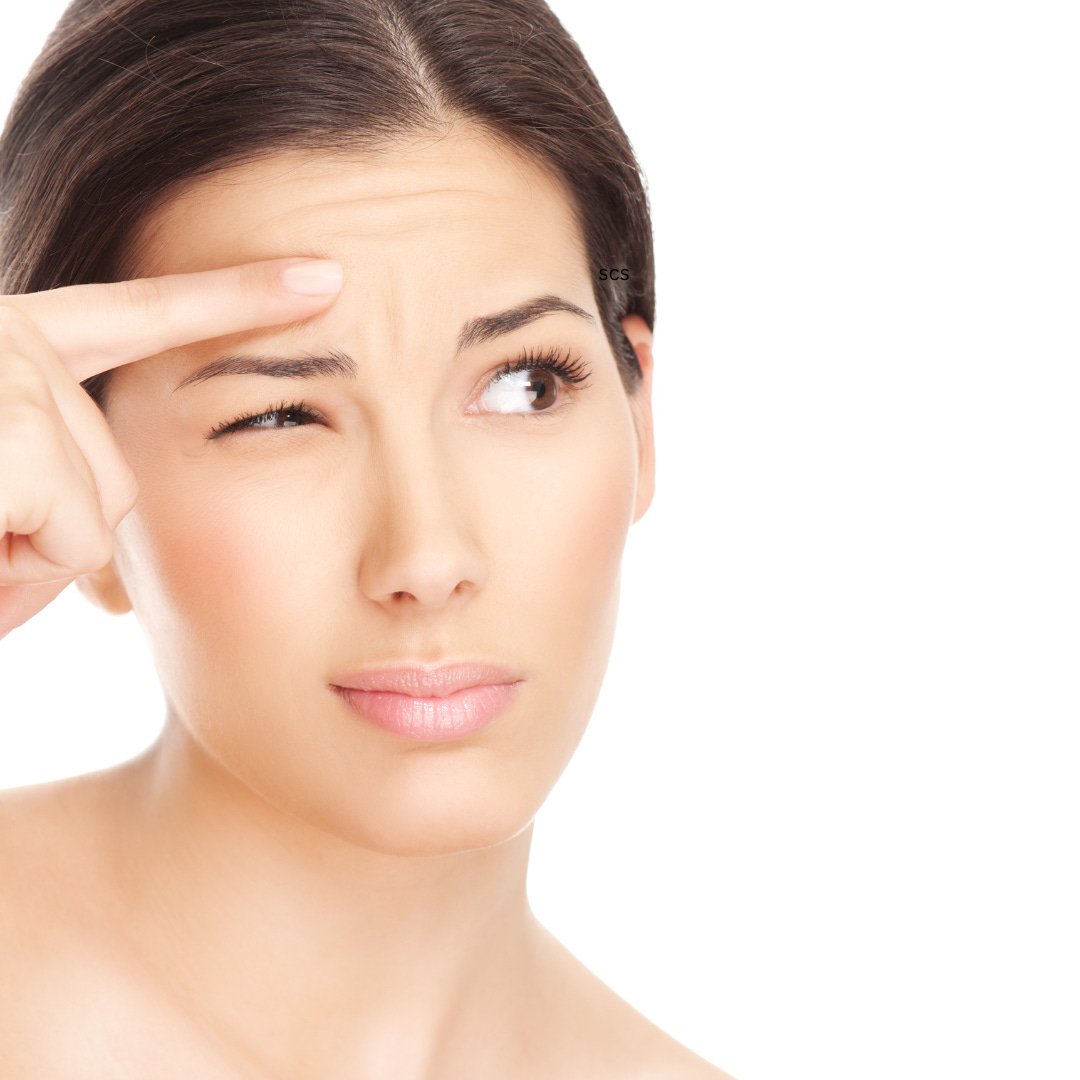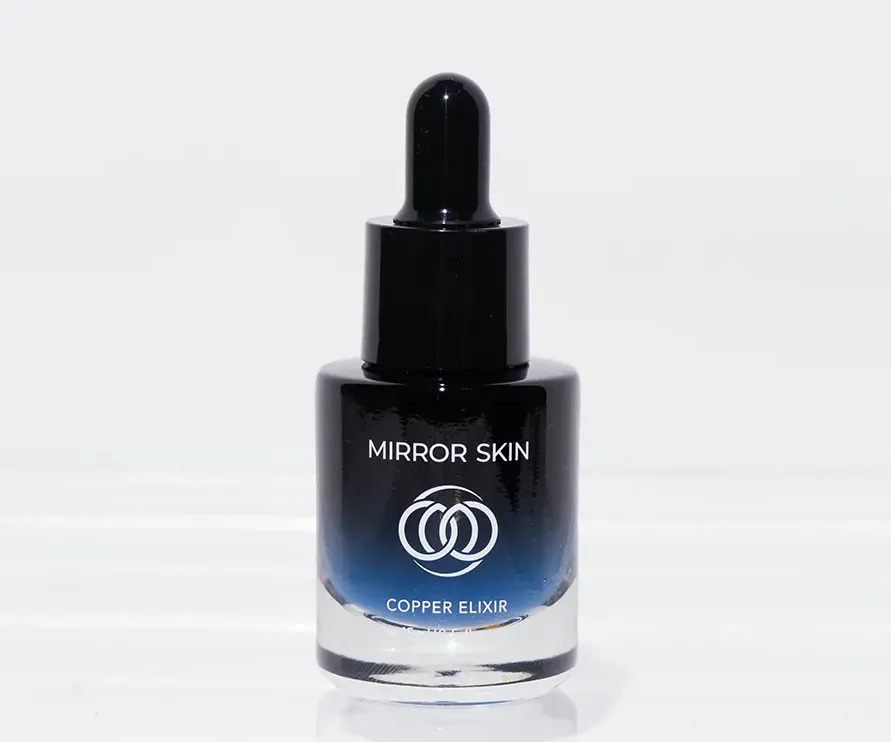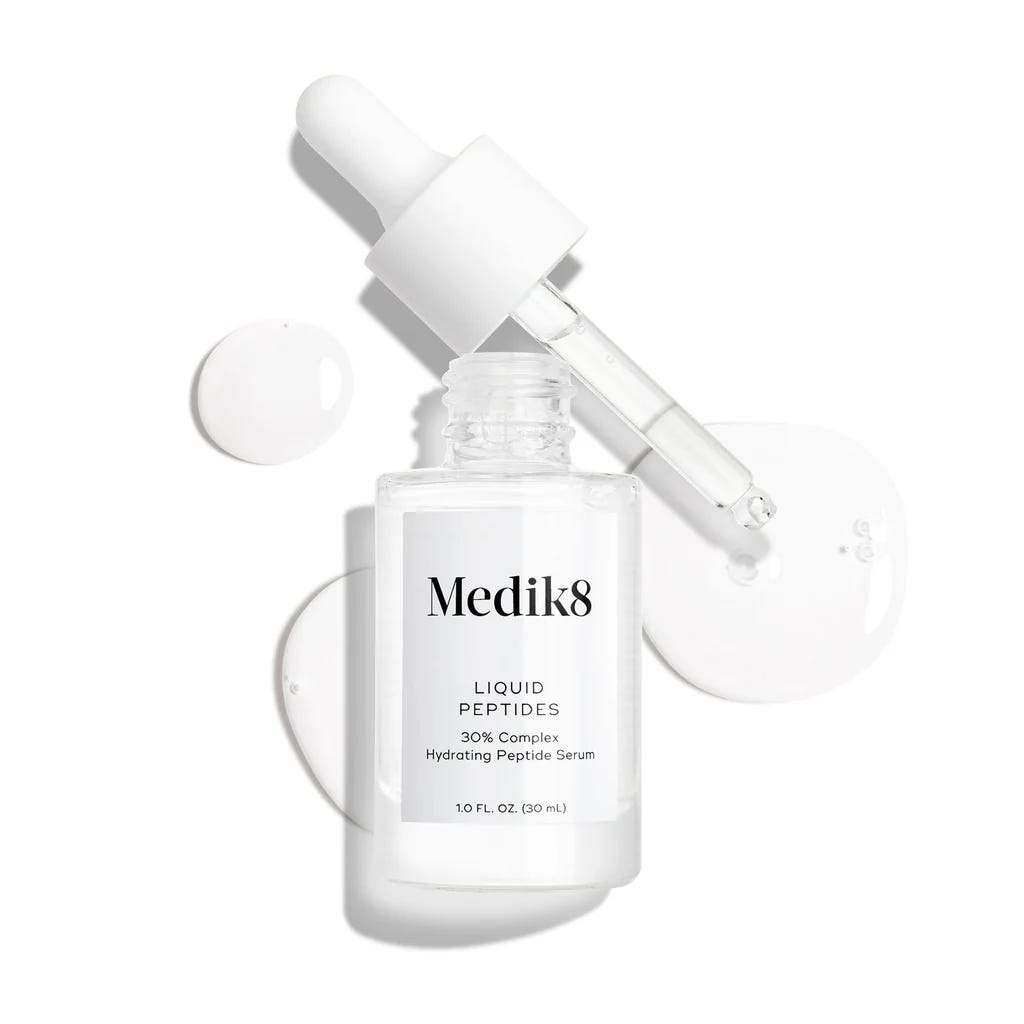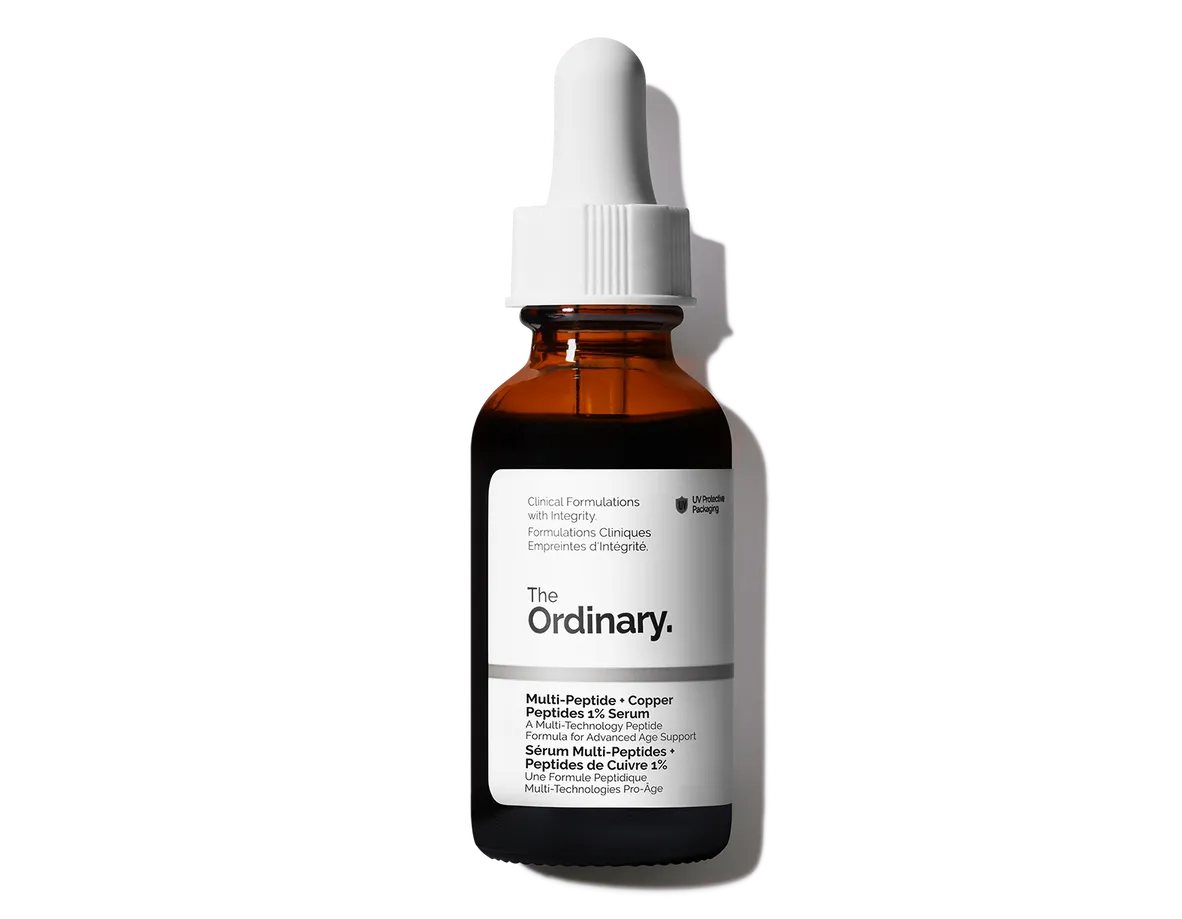Copper peptides are been a staple of anti-aging skincare thanks to their ability to support health aging without causing irritation.
Still, some people ask: are they worth the hype?
Well, as evidenced in my Are Peptides a Scam? article, I certainly think so.
Let's delve into the science behind copper peptides, their benefits, potential side effects, and how to integrate them into your skincare routine effectively.
Understanding Copper Peptides
Copper peptides are naturally occurring complexes of copper and amino acids that play a vital role in your skin health.
These peptides are essential for wound healing, collagen synthesis, and maintaining overall skin vitality.
How Copper Peptides Work at the Molecular Level
Copper peptides penetrate your skin and stimulate the production of glycosaminoglycans and collagen.
They also enhance the activity of antioxidant enzymes like superoxide dismutase, as found in the cult-favorite NIOD product, which protect your skin from oxidative damage.
By promoting these processes, copper peptides help repair and rejuvenate your skin, making it appear firmer, smoother, and more youthful.
Benefits of Copper Peptides
Copper peptides offer a range of benefits for various skin types and concerns:
Anti-Aging
Copper peptides stimulate collagen and elastin production, which are crucial for maintaining skin elasticity and firmness.
Studies have shown that copper peptides can reduce the appearance of fine lines and wrinkles, leading to a more youthful complexion.
Skin Repair and Healing
Copper peptides accelerate wound healing and skin regeneration.
They promote the production of new, healthy skin cells and help repair your skin barrier, making them beneficial if you have damaged or sensitive skin.
In my experience, for that “instant glow-y effect”, copper peptides doesn’t work quite as fast as red light therapy, but they’re are more affordable and readily available than targeted light therapy devices.
Improved Skin Texture and Tone
By enhancing collagen production and skin regeneration, copper peptides improve your skin texture and tone.
They may even help to reduce hyperpigmentation, smooth rough skin, and provide a more even complexion.
My advice: Incorporate copper peptides into your routine if you’re looking to improve skin firmness, heal damage, and achieve a smoother, more even skin tone. That said, don’t neglect the benefits of retinoids like Medik8’s Crystal Retinal and exfoliants like Sunday Riley’s Good Genes for anti-aging and skin texture.Scientific Evidence and Research
Numerous studies support the efficacy of copper peptides in skincare.
Research published in the International Journal of Cosmetic Science found that copper peptides significantly improve skin elasticity and reduce wrinkles.
Another study in Current Chemical Biology confirmed their role in accelerating wound healing and promoting collagen synthesis.
These studies highlight the potential of copper peptides as a powerful anti-aging and skin-repair ingredient.
Potential Side Effects and Considerations
While copper peptides are generally well-tolerated, some individuals may experience mild side effects.
Common Side Effects
Irritation: You may experience slight irritation or redness when first using copper peptides. However, this is extremely rare, and I’ve never heard of anyone having a poor reaction to copper peptides.
Allergic Reactions: Although rare, allergic reactions can occur. It’s essential to perform a patch test before incorporating a new product into your routine.
My advice: Always perform a patch test before using new skincare products containing copper peptides. You can do this by applying a few drops to a small patch of your neck and seeing how your skin reacts rather that applying a ton to your face.Combining Copper Peptides with Other Skincare Ingredients
Integrating copper peptides into your existing skincare routine requires some considerations to maximize their benefits and avoid potential interactions.
How to Integrate Copper Peptides
Morning Routine: Copper peptides can be applied in the morning after cleansing and before moisturizing. You can even find great peptide moisturizers, like Stratia’s Interface, if you don’t want to get a separate serum.
Evening Routine: Alternatively, you can use them in your evening routine for overnight skin repair and rejuvenation.
Ingredients to Pair with and Avoid
Pairing: Copper peptides work well with hydrating and nourishing ingredients like glycerin and ceramides, which can enhance their skin-repairing benefits.
Avoiding: To my knowledge, there's limited evidence on the interaction between copper peptides and vitamin C. To be cautious, consider waiting 20-30 minutes between applying these ingredients or use them in separate routines (vitamin C in the morning and copper peptides at night).
Don’t worry - you can apply copper peptides after your retinol serum at night though.
Product Recommendations
Here are some top products containing copper peptides for various skin types:
For Anti-Aging
Mirror Skin's Copper Elixir: This potent serum combines 1% copper peptides with hyaluronic acid and antioxidants to reduce the appearance of fine lines and wrinkles while boosting hydration.
This is my overall favorite copper peptide-specific serum.
Medik8's Liquid Peptides: A powerful anti-aging serum that delivers a complex of peptides to your skin, enhancing collagen production and improving skin elasticity.
This is my favorite hydrating serum, and the peptide complexes in it are incredible at multitasking.
For Skin Repair
The Ordinary's Multi-Peptide Serum (formerly Buffet): This multi-peptide serum targets multiple signs of aging with a blend of peptides, amino acids, and hyaluronic acid, providing comprehensive skin repair and hydration. This is a great budget-friendly option.
Peptide Moisturizers
Stratia’s Interface: This daily moisturizer is enriched with seven peptides to hydrate, firm, and repair the skin. Its fast-absorbing formula, featuring licorice root extract, pro-vitamin B5, and hyaluronic acid, provides deep moisture and improves skin elasticity.
Naturium’s Multi-Peptide Moisturizer: This nutrient-rich moisturizer combines a powerful blend of multi-peptides, 3-O-Ethyl Ascorbic Acid (a stable form of vitamin C), and panthenol to help reduce the appearance of fine lines and wrinkles. Fast-absorbing and deeply hydrating, it leaves the skin smoother and more radiant with lasting moisture.
How to Incorporate Copper Peptides into Your Routine
Incorporating copper peptides into your skincare routine can enhance your skin’s health and appearance. Here’s a step-by-step guide:
Step-by-Step Guide
Cleanse: Start with a gentle cleanser to remove impurities and prepare your skin.
Apply Copper Peptides: Use a copper peptide serum or moisturizer. If you’re using a serum, apply it after cleansing and before moisturizing. If you’re using retinoids, apply them first before the peptide serum or moisturizer.
Moisturize: Follow with a hydrating moisturizer to lock in moisture and support the skin barrier.
Sunscreen (AM Routine): If you choose to wear SPF, finish your morning routine with a broad-spectrum sunscreen.
My advice: Consistency is key. Incorporate copper peptides into your routine gradually and monitor your skin’s response to adjust frequency and application as needed.To learn more about retinol and vitamin C, check out Can You Use Retinol and Vitamin C Together? and All About Anti-Aging.
Are Copper Peptides Better Than Retinol?
Eh, hard to say. I don’t think we have enough direct comparison studies to make a definitive decision.
Here’s what we do know:
Copper peptides do not induce photosensitivity like adapalene, tretinoin, or other retinoids do
Copper peptides tend to be better tolerated than retinoids, especially for people with sensitive or reactive skin
Retinoids will treat skin texture, acne and hyperpigmentation, and dark circles better than copper peptides
Both retinoids and copper peptides will treat signs of aging, including elasticity and firmness
They work differently, so you don’t need to be choosing one or the other. They’re friends, not enemies
I layer copper peptides on top of tretinoin most evenings without an issue, typically waiting 2-10 minutes and flossing and brushing my teeth with fluoride-free toothpaste in between.
Conclusion
Copper peptides are a promising addition to any skincare routine, offering numerous benefits from anti-aging to skin repair, and they complement your typical retinol and vitamin C well.
By understanding how to use them effectively and integrating them with complementary ingredients, you can achieve healthier, more youthful skin.
I suggest experimenting with different products and routines to find what works best for your skin type and concerns.
Here’s to unlocking the potential of copper peptides for your best skin yet!
Cheers,



















Fawn, what about the cooper peptides and doing red light directly after? I keep seeing the bros talk about this, any experience sign that?